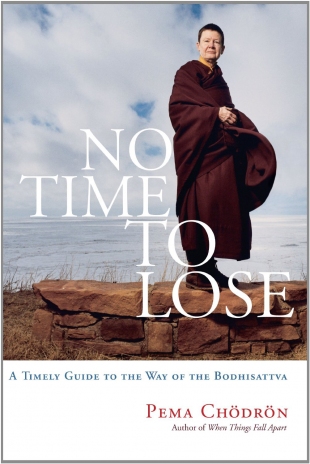"Rejoicing in the good fortune of others is a practice that can help us when we feel emotionally shut down and unable to connect with others.
"Rejoicing generates good will. The next time you go out in the world, you might try this practice: directing your attention to people — in their cars, on the sidewalk, talking on their cell phones — just wish for them all to be happy and well. Without knowing anything about them, they can become very real, by regarding each of them personally and rejoicing in the comforts and pleasures that come their way. Each of us has this soft spot: a capacity for love and tenderness. But if we don’t encourage it, we can get pretty stubborn about remaining sour.
"I have a friend who, when he begins getting depressed and withdrawn, goes to a nearby park and does this practice for everyone who walks by. He finds this pulls him out of the slump before it's too late. The tricky part is getting out of the house, instead of giving in to the seduction of gloom.
"When you begin the practice of rejoicing in others' good fortune, you can expect to encounter your soft spot — as well as your competitiveness and envy. Sitting on the park bench feeling warmth for strangers is relatively easy to do; but when good fortune comes to those we know better, especially those we dislike, it can give us an up-close look at jealousy.
"This has certainly been the case for me. Until I began to practice rejoicing, I wasn't aware of how much envy I had. I remember hearing that a colleague's book was rapidly becoming a best seller, and being pained that my first reaction was resentment. Likewise when I practice generosity, I see my holding back more vividly than ever before. By practicing patience my anger is harder to deny. For someone on the spiritual path, seeing this can be embarrassing.
"Who would have thought that the practice of rejoicing would be a setup for seeing our neurosis? Our usual response would be to feel that we've blown it; but for aspiring bodhisattvas this isn't the case. Because our intention is to wake up so we can help others do the same, we rejoice as much in seeing where we're stuck as we rejoice in our loving-kindness.
"This is the only way for true compassion to emerge: this is our opportunity to understand what others are up against. Like us, they aspire to open up, only to see themselves close down; like us, they have the capacity for joy, and out of ignorance they block it. For their sake and ours, we can let the story lines go and stay present with an open heart, and we can rejoice that we're even interested in such a fresh alternative."
